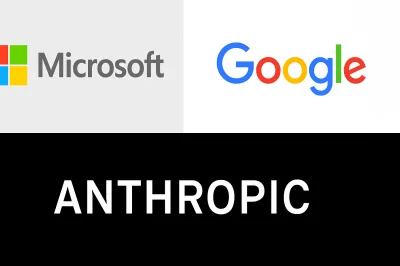
AI Arms Race: OpenAI & Google’s Power Plays Reshape the Tech Landscape
The battle for AI dominance is heating up, with OpenAI and Google locked in a fascinating, and sometimes petty, power struggle. From hardware acquisitions to competing AI announcements, the two tech giants are constantly vying for mindshare in this rapidly evolving landscape.
OpenAI, not to be outdone by Google's I/O announcements, made a bold move by acquiring the "io" hardware division of Jony Ive's design studio, LoveFrom. While seemingly a simple acquisition, it's a calculated PR play that stole some of Google's thunder. Even though "io" reportedly stands for "input output," the timing of the announcement, following Google's I/O event, is undeniably provocative.
The acquisition involves $6.5 billion in equity to bring roughly 55 people to OpenAI, including former Apple design leaders. They will report to Peter Welinder, and Jony Ive and LoveFrom will take on significant design roles within OpenAI. This move signals OpenAI's ambition to create its own AI-native devices, potentially bypassing the distribution dominance of Apple and Google.

Altman and Ive, who met two years ago, plan to unveil a voice-first AI device, possibly as early as next year. Early prototypes, described as potentially iPod Shuffle-sized, already exist. Furthermore, OpenAI is exploring AI earbuds and hardware bundles to upsell ChatGPT subscriptions.
Google, meanwhile, is focusing on expanding the reach of its Gemini AI model. The rollout of AI Mode in Google Search aims to leverage Google's vast personal data to differentiate Gemini's capabilities. Integrating Gemini with Gmail, Workspace, and YouTube could be key to retaining users within the Google ecosystem.
While Google might not see an immediate crisis, the increasing interest in AI-powered search tools like ChatGPT present a threat. Google is responding by modernizing search faster than expected and is well-positioned to continue leading in model development with its latest Gemini models.
Adding another layer to the competition, Anthropic unveiled its Claude 4 models, claiming superiority in coding performance. This move positions Anthropic as a key player in the AI model market, competing fiercely with OpenAI and Google.
The AI landscape is rapidly shifting, with competitors vying for various strategic advantages. Microsoft is re-architecting Windows as an Agentic AI platform where users can connect with AI agents to perform tasks. Microsoft has unveiled NLWeb, which can turn any website into an agentic website. Google is embedding "agentic checkout," enabling Search to add items to a cart and complete purchases either with user confirmation or autonomously.
The question remains: Will OpenAI's hardware ambitions and Google's integrated AI experience be enough to capture the hearts (and wallets) of consumers? The AI arms race is far from over. What are your thoughts on the strategies being employed by OpenAI and Google? Share your opinions in the comments below.